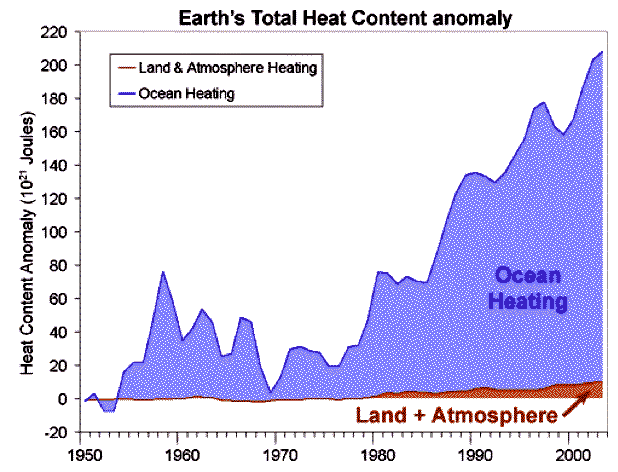Mr. Rick Cina loves to promulgate the standard denier lie that the planet has not warmed since 1998. This is wrong in not one, not two, but THREE ways!
1. He’s cherry-picking his date. 1998 was an extraordinarily hot year. That means that any normal year afterwards was cooler than 1998, leading to the conclusion that the planet has been cooling since 1998. But if you choose any year other than 1998, the point collapses. There have been many recent years hotter than 1997. There have been many recent years hotter than 1999. This trick of cherry-picking a single data point and using it to make a case is a standard ploy of charlatans, and Mr. Cina uses it enthusiastically.
2. Climate is *defined* to be weather conditions that persist for at least 30 years. That’s because the oceans act as thermal shock absorbers, spreading out changes over periods of at least 30 years. So it’s pointless to argue about what’s been happening in the last 17 years. The honest scientist looks at ALL the data, and when you do that, the rise in average global temperatures is undeniable.
3. He is using only surface temperatures. The earth’s atmosphere holds less than 1% of all the heat energy on the planet’s exterior. The oceans hold more than 99% of the earth’s surface heat. So using air temperature measures is seldom informative. It’s far more useful to look at ocean heat content, and THAT has shown the oceans have continued to warm inexorably throughout the so-called “hiatus” period.
Mr. Cina will occasionally try to obfuscate his way out of this jam by stating that the oceans’ temperature has increased by only a tiny amount. This is another lie. The oceans are at many different temperatures, both horizontally and vertically. The temperatures of these different ocean areas are changing in many different ways. That’s why honest scientists talk about the change in heat content, not the change in temperature. But Mr. Cina never mentions the huge increases in ocean heat content.
Here’s a graph of global heat accumulation from the University of Texas:

